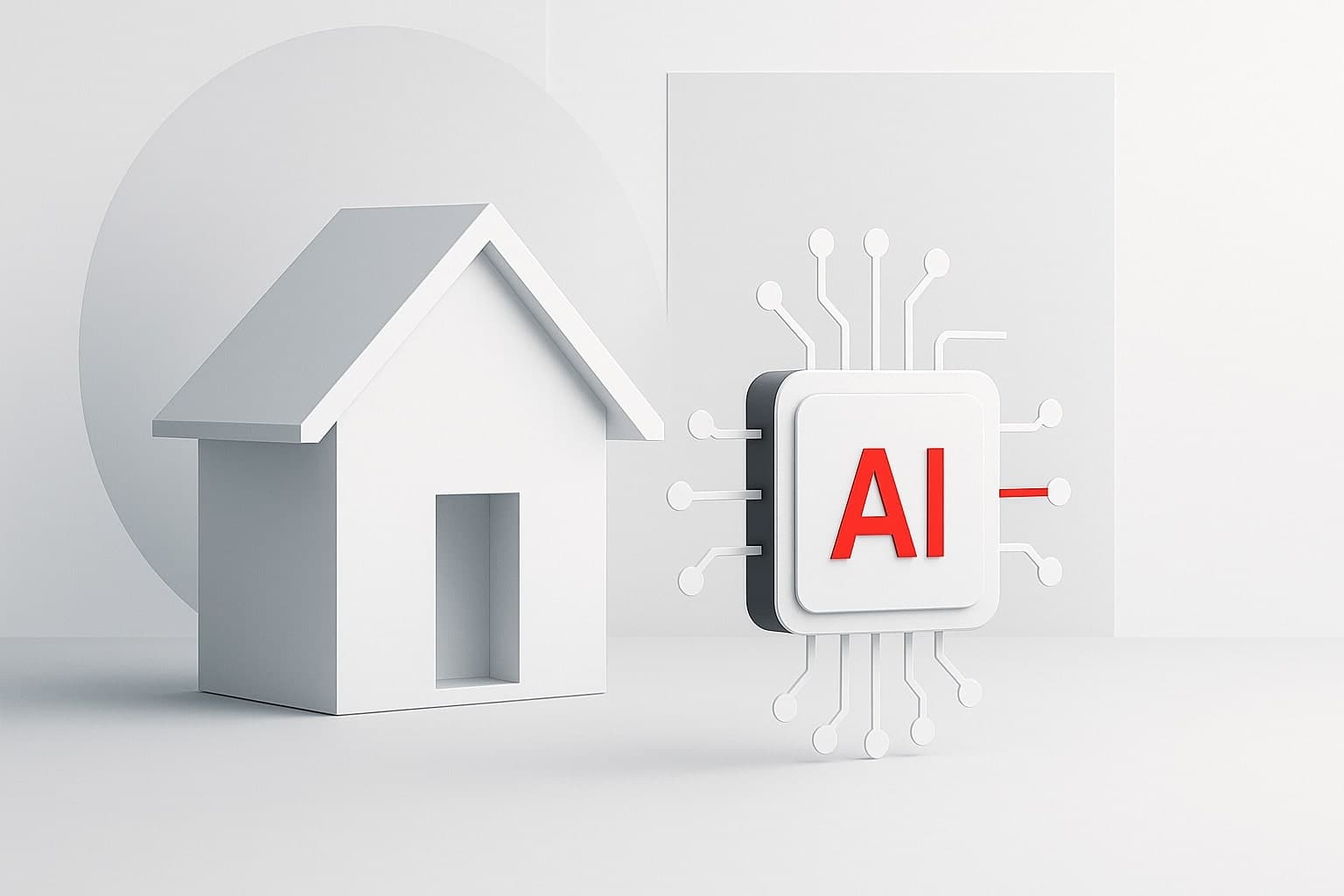October 17, 2025
Real Estate

Artificial Intelligence (AI) is transforming industries — and real estate is no exception.
But there’s a myth that adopting AI requires massive budgets, big tech teams, and complex infrastructure.
The truth? You can start your AI journey with minimal investment by focusing on automation, data you already have, and tools that scale with your business.
Whether you’re a property developer, brokerage, or facilities management firm — AI can help you make smarter decisions, improve efficiency, and create better client experiences without disrupting existing workflows.
AI doesn’t start with buying expensive tools. It starts with understanding and using the data you already collect.
Most real estate businesses already have valuable data sitting in:
CRM systems (lead sources, sales patterns, client preferences)
Property listings (pricing, location, demand)
Maintenance logs and tenant feedback
Marketing performance metrics
You can begin by organizing and cleaning this data.
Once structured, it becomes the foundation for:
Predictive insights (like pricing trends or occupancy forecasts)
Process automation (like follow-ups or lead prioritization)
Chatbots that answer property-related queries
Example:
A Dubai-based real estate brokerage used basic CRM data and a low-cost AI assistant to automate lead scoring. Within two months, response times improved by 60%, and conversions rose by 18% — without hiring new staff.
You don’t need to hire data scientists or developers to start experimenting with AI.
No-code and low-code platforms allow you to build automation, analytics dashboards, and intelligent chatbots using drag-and-drop interfaces.
Affordable tools for real estate AI adoption:
Zapier / Make: Automate workflows like syncing leads, scheduling viewings, or sending updates.
ChatGPT / Custom GPTs: Create property chatbots to engage clients and qualify leads.
Airtable + AI plugins: Manage listings, client data, and automate pricing reports.
Power BI or Google Looker Studio: Visualize sales and demand trends without coding.
These tools help teams experiment with AI affordably before scaling to custom-built systems later.
The most cost-effective way to start with AI is automation — not advanced predictions or neural networks.
Start by identifying repetitive, time-consuming tasks:
Manual data entry
Customer follow-ups
Document verification
Scheduling and property updates
Practical example:
A mid-sized property management firm in Bengaluru automated rent reminders and service request tracking using AI chatbots integrated with WhatsApp.
Result: 30% fewer missed payments and a 40% reduction in support calls.
Automation creates visible ROI fast — building trust and financial room for more advanced AI investments.
Cloud-based AI platforms from AWS, Google Cloud, or Azure allow real estate firms to use powerful AI tools on a pay-per-use model.
You only pay for what you use — no expensive infrastructure needed.
You can start with:
AI-powered search and recommendations for property listings.
Natural Language Processing (NLP) for analyzing client feedback or reviews.
Vision AI for property image tagging, defect detection, or visual quality checks.
These services scale as you grow, allowing you to test and expand your AI use cases gradually.
AI adoption isn’t only about tools — it’s about people.
Many real estate teams hesitate because they fear automation will replace jobs or complicate workflows.
The key is transparency and training:
Involve agents, marketing, and operations early in the process.
Show how AI helps them — like reducing paperwork or providing faster insights.
Start with small wins that show real value before rolling out company-wide changes.
Pro Tip: Employees who co-create the first automation workflows often become your strongest advocates for future projects.
A property consultancy in Abu Dhabi wanted to modernize without large upfront investment.
They began by:
Integrating an AI chatbot on their website for property queries.
Automating lead routing using CRM integrations.
Using Google AutoML to predict property demand in specific areas.
Within six months, they saw:
40% faster client response times
25% more qualified leads
Savings of nearly 200 staff hours per month
All achieved with subscription-based tools and no in-house data science team.
AI adoption isn’t about scale — it’s about strategy.
Real estate firms that start small, leverage existing data, and use low-cost tools can build meaningful digital capabilities without financial strain.
If your firm wants to explore custom AI automation or predictive analytics without heavy investment, MLab Innovations can help you map your AI journey — one step at a time.
👉 Let’s design your AI roadmap — smart, scalable, and budget-friendly.
No related articles found.